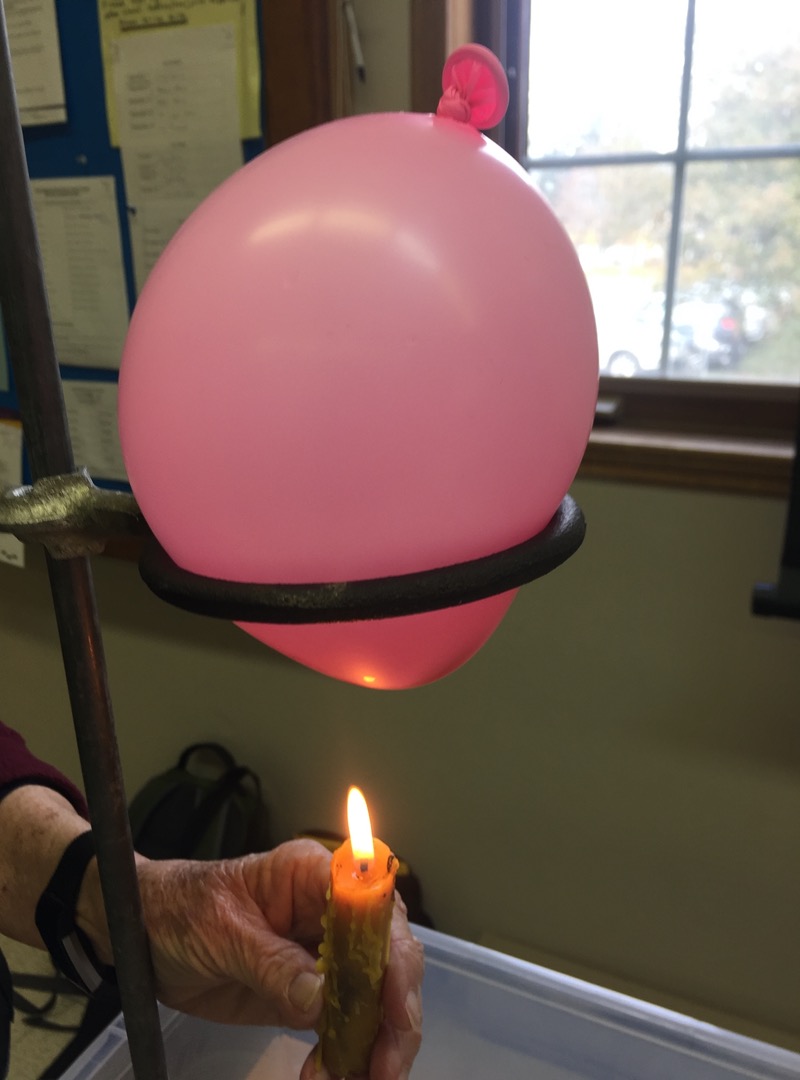by Rose Jansen
“My granddaughter tells me she will not be having any children because the world will be too awful by the time her babies grow up. She fears that the earth is “hurtling toward catastrophe.” This comment was made by a woman attending a presentation of the Hamilton 350 Elders For Climate Sanity.
Maybe some of you are also worrying. How can our grandchildren flourish in a “house that is burning”? About a year ago a few of us older ones in the Hamilton 350 climate group started thinking about seniors and the climate crisis. We had learned that the destructive effects of fossil fuels were already well known by industry and governments 50 years ago. The seriousness of climate change was intentionally hidden from us. Were we participants in letting the climate warm up? How do we look at our grandchildren knowing that, as Greta Thunberg claims so passionately, we grown-ups have failed young people?
What can we do now? Where do we start? Greta’s challenge is that we must mobilize everyone. Does that include you? The children are watching us.
Why seniors? (After all, we won’t be around when it gets really bad.) The Elders 4 Climate Sanity recognize that seniors may be an untapped resource. In many cultures the old ones are considered wise. They are honoured, respected, consulted and emulated. Elders are authentic role models, who embody sound values. After retirement people are freer to speak up and to speak truth, without fear of losing their jobs. Because of their numbers, boomers have considerable political clout.
The prevailing fantasy about our retirement is that it’s all about us. After all our years of working, we now deserve leisure and pleasure. Does retirement require that we press pause on our brains? We are not just consumers but still citizens. The stereotypes and jokes about aging (in most birthday cards for example), are actually very untrue. The vast majority of retired persons are on the ball. We have learned so much. We have experience and expertise. Let’s tap into this. Everyone is needed. Perhaps by supporting today’s young climate activists we can help to build a much-needed bridge between the generations.
Do we understand enough about the science of climate? Enough to advocate successfully and to change our ways meaningfully? The 350 climate movement mentioned above refers to the quantity of carbon dioxide in the earth’s atmosphere, 350 parts per million, which sustained our planet for thousands of years and to which we have become accustomed. The scientific evidence now shows that the level of carbon dioxide has reached 410 parts per million and is continuing to rise.

At the front of the room, a candle flickers under a balloon filled with water. Tina, the science teacher in our group, is giving another free presentation. (To date we have had 14 such sessions). The audience is watching this balloon. Surely it will soon burst? In the meantime, Tina explains how the scientific method is a continuous process of checks and balances, with scientists always double checking each other’s measurements and conclusions. The world’s scientists have agreed for a very long time that human burning of fossil fuels has warmed the planet in unprecedented ways.
We can hardly miss the effects of climate breakdown and extreme weather: more heat, storms, and wildfires, flooding and drought, seas rising and acidifying, mosquitoes and ticks spreading. The resulting damage will lead to millions of refugees, food insecurity and huge costs.
Minutes have passed, and the balloon has not burst. This experiment illustrates how the earth’s oceans absorb and store the huge quantities of heat being trapped by the greenhouse gases in our lower atmosphere. These gases keep increasing, dangerously, locking away ever more heat. Wildlife struggles to adjust to changes in their habitats as northern regions warm, and glaciers melt. Recognizing how dependent humans are on the planetary flora and fauna for survival, some scientists are predicting the breakdown of human civilization.
So what can we do? In the discussion following each presentation, people ask what is to be done. We easily feel overwhelmed and despairing. Is it too late to make a difference? Our group has prepared a handout of resources and suggestions, about individual and group actions. We recommend Bill McKibbens’ latest book Falter. We suggest that everyone keep learning and talking. Joining a climate action group can help with feelings of helplessness. Learning about the many good carbon-related projects around the world can be very encouraging.
A few very knowledgeable seniors at one residence planned a trip to City Hall together to demand more action from their politicians. At another retirement home, a group has taken on improving recycling in their building, especially the reduction of plastic waste.
Here is another idea — invite Elders For Climate Sanity to give a presentation to any group that you belong to. Our talks are free!
Rose Janson is part of Elders For Climate Sanity, and wrote this on behalf of the group. For more information go to elders4climatesanity.com.
Disability Theology and it’s Promise for our Church